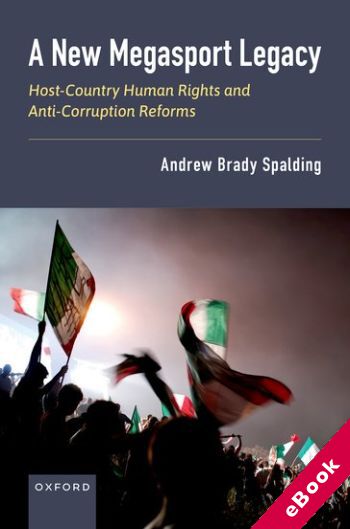
The device(s) you use to access the eBook content must be authorized with an Adobe ID before you download the product otherwise it will fail to register correctly.
For further information see https://www.wildy.com/ebook-formats
Once the order is confirmed an automated e-mail will be sent to you to allow you to download the eBook.
All eBooks are supplied firm sale and cannot be returned. If you believe there is a fault with your eBook then contact us on ebooks@wildy.com and we will help in resolving the issue. This does not affect your statutory rights.
Though the Qatar 2022 FIFA Men's World Cup is for many a symbol of long-standing corruption and human rights problems, the event may actually represent something entirely new.
Megasports are now demonstrating a capacity to leave what this book calls a human rights and anti-corruption legacy: norms, practices, policies, or laws that have application beyond sport, are likely to endure after the event, and the implementation of which is accelerated by hosting the event. In the 2010s, Brazil's hosting of the FIFA Men's World Cup and Summer Olympics, and then South Korea's hosting of the Winter Olympics, left what this book calls reactive, accidental, and one-dimensional anti-corruption legacies. Most would be shocked to find that Qatar now moves this legacy concept forward, undertaking to create megasports' first intentional and proactive human rights legacy.
The first and perhaps best opportunity to build a proactive, intentional, and two-dimensional human rights and anti-corruption legacy lies in France, as it prepares to host the 2024 Paris Summer Olympics while implementing new landmark anti-corruption and human rights laws. The concept may still advance in Australia and New Zealand (2023 FIFA Women's World Cup) and Italy (2026 Milan Cortina Winter Olympics). However, the United Bid of Canada, the United States, and Mexico has promised the first proactive, intentional, and two-dimensional legacy around the 2026 FIFA Men's World Cup. The book analyzes existing megasport policies and practices, then suggests reforms to acknowledge and support these new legacies.